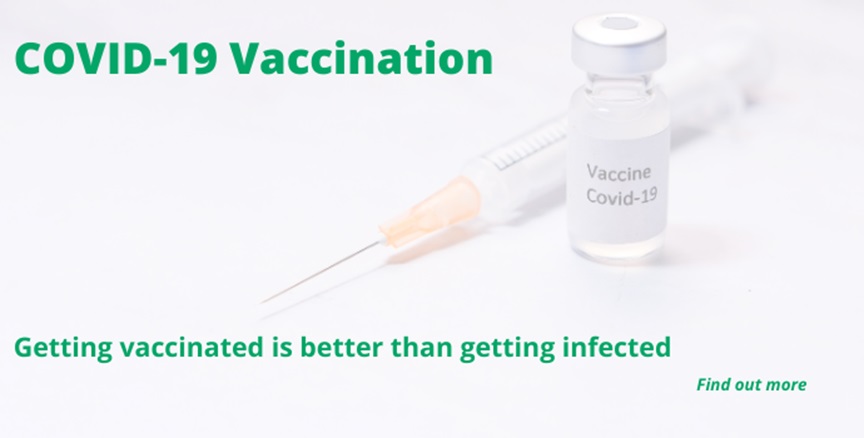
Facts about the COVID-19 Vaccine
How many doses do I have to be vaccinated with?
For some COVID-19 vaccines, two doses are needed. For more detailed information on this visit the WHO website where you will find up-to-date information. If the type of vaccine does require two doses, it is important to get the second dose as well (within the timeframe the medical professionals have advised you) in order to make sure you benefit fully. The first dose will stimulate the production of antibodies in your immune system for the first time. The second dose will act as a booster, making sure your immune system develops a memory response to fight off the virus if your body comes into contact with it again.
What is the recommended time between doses?
WHO recommends an interval of 3 to 4 weeks. Depending on the vaccine, the interval may be extended to up to 42 days or even up to 12 weeks for some vaccines. This is based on current evidence. Please continue to check information released by WHO and MoPH/Afghanistan in case this changes based on updated scientific evidence.
Which type of vaccine should I take? Can I refuse one and insist on only having another?
There are many COVID-19 vaccines being developed and produced by different manufacturers around the world. These vaccines will not have been released unless they have undergone rigorous review and approval for safety and efficacy (how effective they will be). If a vaccine type requires two doses, WHO recommends that the vaccine from the same manufacturer be used for both doses. This recommendation may be updated as further information becomes available.
It is important to note that not all types of vaccines will be available everywhere. Depending on countries, and procurement, storage requirements and availability of the vaccines, those produced from certain manufacturers may be more readily available in some countries than others. It is advised to take any of the vaccines made available to you, rather than waiting for your ‘preferred’ option to be become available. The vaccines made available to you have been procured through WHO and the Ministry of Public Health/Afghanistan, with all considerations taken into factor.
What safety measures should I be continuing to take against infection and transmission of the virus after I have been vaccinated?
Available clinical trials have shown COVID-19 vaccines to be safe and highly effective at preventing severe disease. Given how new COVID-19 is, researchers are still looking into how long a vaccinated person is likely to be protected from infection, and whether vaccinated people can still transmit the virus to others – i.e. whether they are carriers.
As the vaccine rollout expands, WHO will continue to monitor the data alongside regulatory authorities, so please do continue to rely on information issued by WHO and the MoPH/Afghanistan.
Safe and effective vaccines are making a significant contribution to preventing severe disease and death from COVID-19. As vaccines are rolling out and immunity is building, it is important to continue to follow all of the recommended measures that reduce the spread of SARS-CoV-2. This includes:
- physically distancing yourself from others;
- wearing a mask, especially in crowded and poorly ventilated settings;
- washing and/or disinfecting your hands frequently;
- covering any cough or sneeze in your bent elbow;
- and opening windows when indoors.
For more information, please visit the World Health Organization website, where a wealth of up-to-date information and advice on COVID-19 is available for the public. The Ministry of Public Health, Government of Afghanistan website also contains official and up-to-date information in Dari, Pashto and English.

